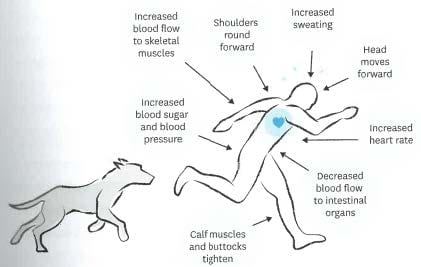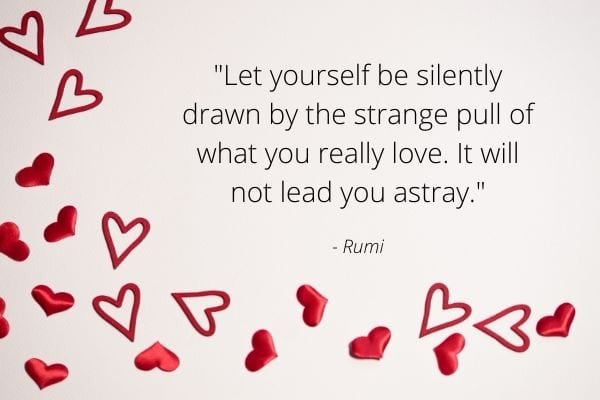
Last weekend we celebrated my parents 60th wedding anniversary—an incredible achievement and story of love, companionship, struggle, faith, growth & gratitude. This month it’s my turn to write the newsletter and ideally it should be on the front desk at the beginning of the month. On Saturday, I realised I was behind schedule and feeling the pressure. Not only did I have no idea of what to write about, but I had a wedding anniversary party to organise with a growing list of have-to-do’s, must-do’s and should-do’s consuming my thoughts which brought a mild state of angst/anxiety. “Obviously, I’m not the only one that’s ever felt this before…”
But seriously, how often in a given week do you experience a similar reaction, where your life be-comes ruled by a multitude of analytical details in your head rather than breathing out and allowing the intuitive energy of your heart to guide you?
We know that a mild/moderate amount of stress in life is natural and hard to avoid but also, in small doses, can be beneficial. E.g. improves cognitive function, boosts the immune system, builds resilience and can even enhance a child’s development (for more info read: healthline—4 surprising health benefits of stress).
Maybe this is why many of us have a love/hate relationship with stress. We know it disturbs our Zen state and yet it has the potential to boost us into action and greater productivity.
Chronic stress, on the other hand, has the opposite affect and can be incredibly detrimental to our overall health and wellbeing (hence the term, “stress kills”).
So how do we identify bad stress & how does it come about?
When negative thoughts, such as worry, fear, overwhelm, guilt, anger, sadness, etc, dominate our thoughts day in and day out, our body moves into a chronic fight/flight response known as “Sympathetic Dominance” (refer to image).

Less obvious responses include:
- Digestive System suppressed. E.g. bloating, constipation, food sensitivities, etc.
- Reproductive System suppressed. E.g. irregular periods, polycystic ovaries, infertility, etc.
- Increased blood sugar & increased clotting response
- Immune System suppressed
Once your brain and body gets used to these chronic physiological reactions, it is more likely to overreact to even small levels of stress and that is when we often see reactions like anxiety attacks, acute vertigo episodes, palpations, unexplained nausea and irrational emotional outbursts. The body is wound up and resilience has, therefore, been lowered.
How do we CALM THE FARM & get reconnected?
1) Move out of your head and into your heart
- Stop overanalysing all of your problems and remember “you are what you think about most”
- Focus on what you want and put your energy into solutions rather than focusing on problems – “Follow your heart but take your brain with you”
2) Exercise
- Exercise allows us to reconnect with our body and take our mind off our worries.
- It increases the brains production of endorphins which are the ‘feel good’ neurotransmitters.
3) Breath
- When you want to slow or calm yourself down, take deep breaths in and LONG, SLOW BREATHS OUT.
- When you want to energise yourself, take BIG, SLOW BREATHS IN & quick breaths out.
4) Get Adjusted
- When the body is in a stressed state (fight/flight), your head and shoulders roll forward and au-tomatically, the brain assumes you are in danger (ie. being chased by a wild dog (refer to picture).
- Chiropractic adjustments are designed to take stress off the nervous system and bring your posture back so you can return to a state of calm.
5) Connect with your heart
- “Don’t be pushed around by the fears in your mind. Be led by the dreams in your heart.”
- Follow your heart – do you what you want and love what you do.
- Be grateful everyday for not only the joyful, fun parts but the challenges as well.
So it’s 2pm last Saturday and the pressure is building. How am I going to get this newsletter article done and be prepared for the wedding anniversary celebrations?
Then all of a sudden, it was like an angel tapped me on the shoulder and said, “Sally, what’s truly important in your heart?”
My answer was: “Mum and Dad.” Acknowledging and sharing my gratitude to my amazing parents and their special night was what really mattered and everything else blended into insignificance.
So I sat down and traced a journey of my life and all the blessings we’d shared as a family—the love, laughter, tears & growth. Then, within minutes, I was back into my Zen and the night trans-formed into an incredible evening of shared love and gratitude. One of those heart felt gatherings we will all treasure for life.

Sally 🙂

